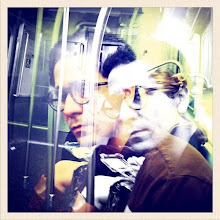
The Article is titled 'WASHINGTON AND LINCOLN: Which of Our Two Greatest Countrymen Was the Greater as Statesman and Administrative Officers?' The transformational figuration of Lincoln is depicted in his shift from deer-skin breeches and a coonskin cap to the stately shawl and stovepipe topper we are now more accustomed to associating him with.
The then unknown Lincoln went to Cooper Union to deliver his address on the subject of stopping slavery's expansion to the western states in February 1860. Early that Monday afternoon, February 27, just before giving his famous address, he stopped into Knox's Great Hat and Cap Establishment at 212 Broadway, just above Fulton, where he bought his signature stovepipe topper.
Gave his speech that evening. It is now recognized that the success of the speech--its level-headed thinking and strength of oratory--catalyzed the kinetics of recognition and fame that led to Lincoln's presidency. The next morning, Lincoln's fifty-minute speech was printed in full, front page on the New York Times.
This post, however, is not about Lincoln. It's about coonskin caps. Daniel Boone hated them and never wore one. Lincoln, on the other hand, did. But he had to give it up before Cooper Union. That February, he indeed arrived in a coonskin and left, ready for the presidency, in a stovepipe.
The savage American better received in the courts of Europe as a wild man of the west than in the metropolises of his own nation? Ben Franklin charmed Europe as the rustic genius of the wilderness. But Mr Franklin never ran for president.

Where then does the currency of the American savage retain its charge? Was recently reading an article on the gastronomic potential of raccoon. I've eaten raccoon (in Guatemala City, Guatemala). It's a tough meat and maybe more worth its weight in rustic association than actual quality of meat. But I'm nonetheless annoyed with the responses after the article--noses in the air; gourmandesque feathers in a gross flutter.
http://www.mcclatchydc.com/251/story/59566.html
Where then canst'ou find the great wilderness of yesteryears? Where some braised raccoon? Where gone old Brer, original countryman? I think it still possible to listen to Neil Young seriously. Where then hast'ou hid, fur hat for the world?




No comments:
Post a Comment